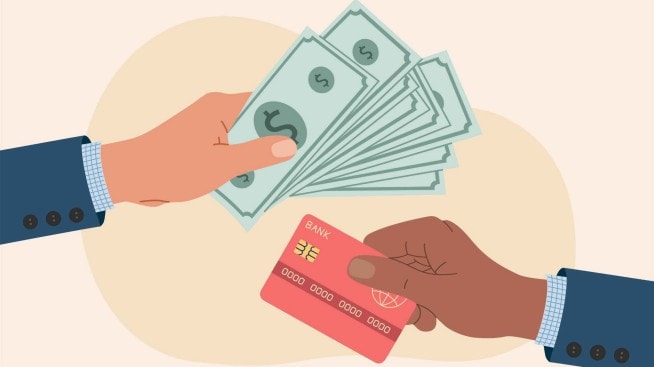Ways to handle a financial windfall

What to do when extra money comes your way
Having unexpected money fall into your lap can be exciting, but it isn't always easy to decide what to do with it. This money, a financial windfall, can come to you in a variety of ways, like getting a bonus at work, inheriting money from a relative or winning a contest or prize.
You might also be entitled to a windfall through a tax refund or tax credits based on your income. For example, the federal Earned Income Tax Credit can provide a substantial windfall to some working individuals who have low-to-moderate income.
While it may be tempting to do something right away with your financial windfall, it may make sense to stop and consider your options before spending it as well as look into tools that can help you manage your finances.
What should I do when I get it?
Review your financial situation before making any decisions about how to spend a financial windfall. For example, a vacation might sound nice, but if you have a lot of credit card debt, you may want to pay that off instead. While you may want to put a down payment on a new car, it may make more sense to put the money toward a rainy-day fund. Think about:
- Your financial goals
- Your current monthly income
- Your savings
- Your outstanding debt
- Your credit score
- Your monthly expenses
Along with reviewing your overall financial situation, educate yourself on the many ways to manage and invest your windfall. Learning all about investing, markets, planning and retirement can help prepare you for actively putting your cash to work.
Will I have to pay taxes on it?
Consider figuring out whether you owe taxes on the extra money you made before you spend it. This is important because you want to have enough set aside to cover any tax liability.
Talk to a tax adviser if you have questions about taxes that you might have to pay.
How should I spend it?
Now you're ready to start considering what to do with the remaining money. Some options include:
- Improving your credit health: Pay off an entire loan or credit card balance, eliminate debts in collections or start making extra payments to chip away at large account balances or high-interest accounts. All of these activities could have a positive impact on your credit health.
- Building your emergency fund: Put money away for unexpected expenses, like a job loss, a large medical bill or a car repair. Experts recommend having enough to cover 3 to 6 months of expenses.
- Boosting your retirement savings: Increase your contributions to your retirement account. Whether your windfall can go straight into your retirement account may depend on the account type and the source of the funds.
- Saving for a financial goal: Put your windfall toward your goal, whether it's buying a house, saving for a car or going on a dream vacation.
Key takeaways
- A financial windfall can come from a number of sources, like your employer, an inheritance or a tax credit.
- Take a look at your finances and goals, and make sure to account for any taxes you owe.
- Saving, investing and improving your credit health are all possible options for using your extra money, and each comes with some trade-offs.
- There's no right option when it comes to spending a financial windfall. Choose the best one for you based on your financial situation and goals.



